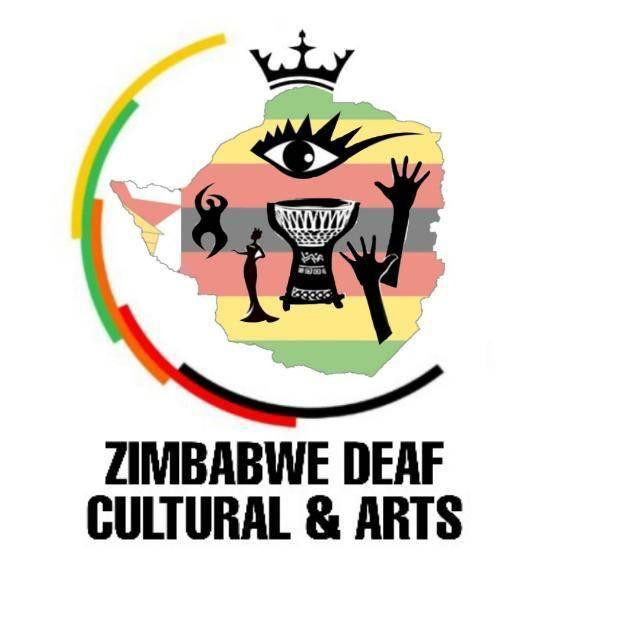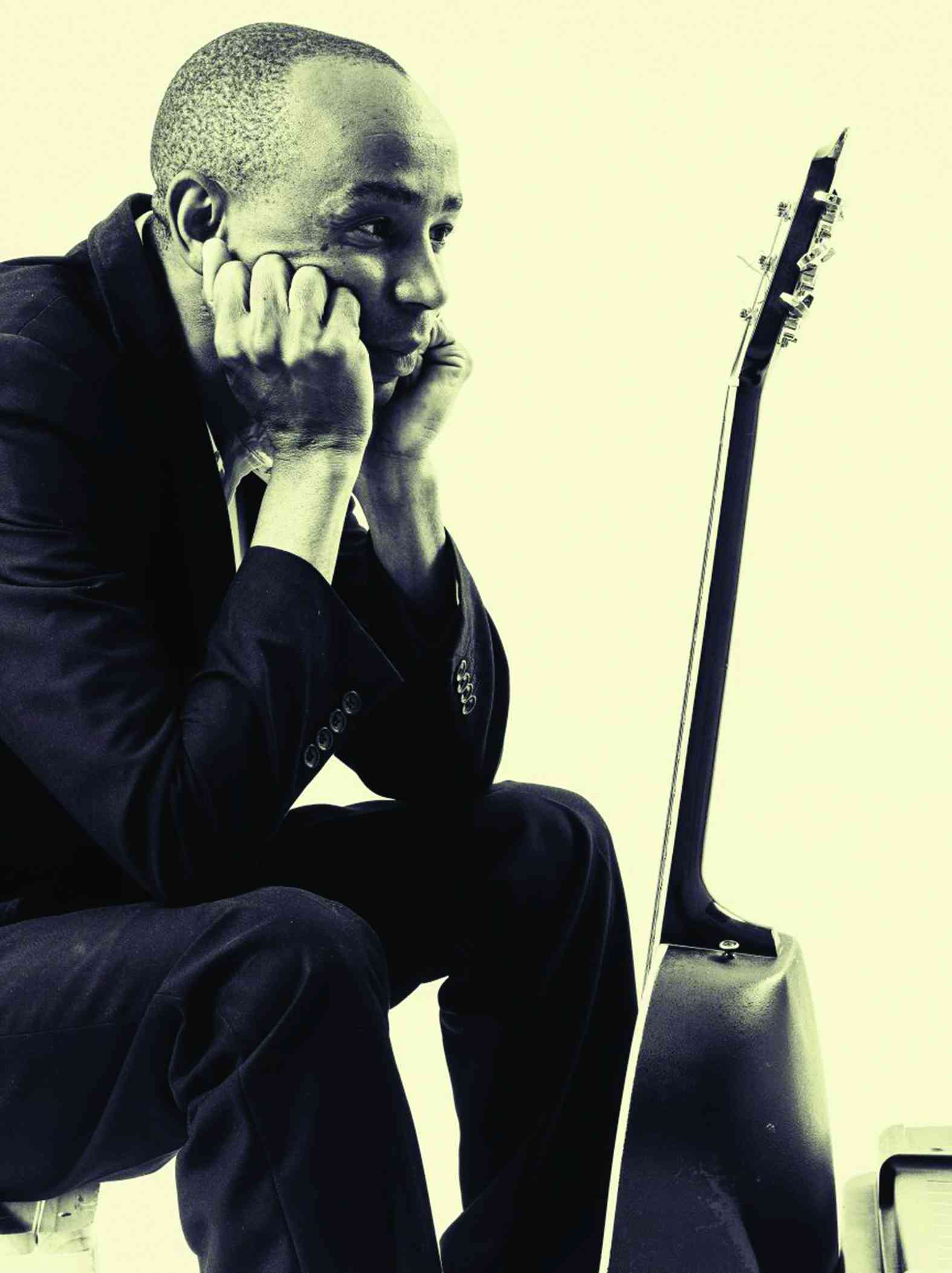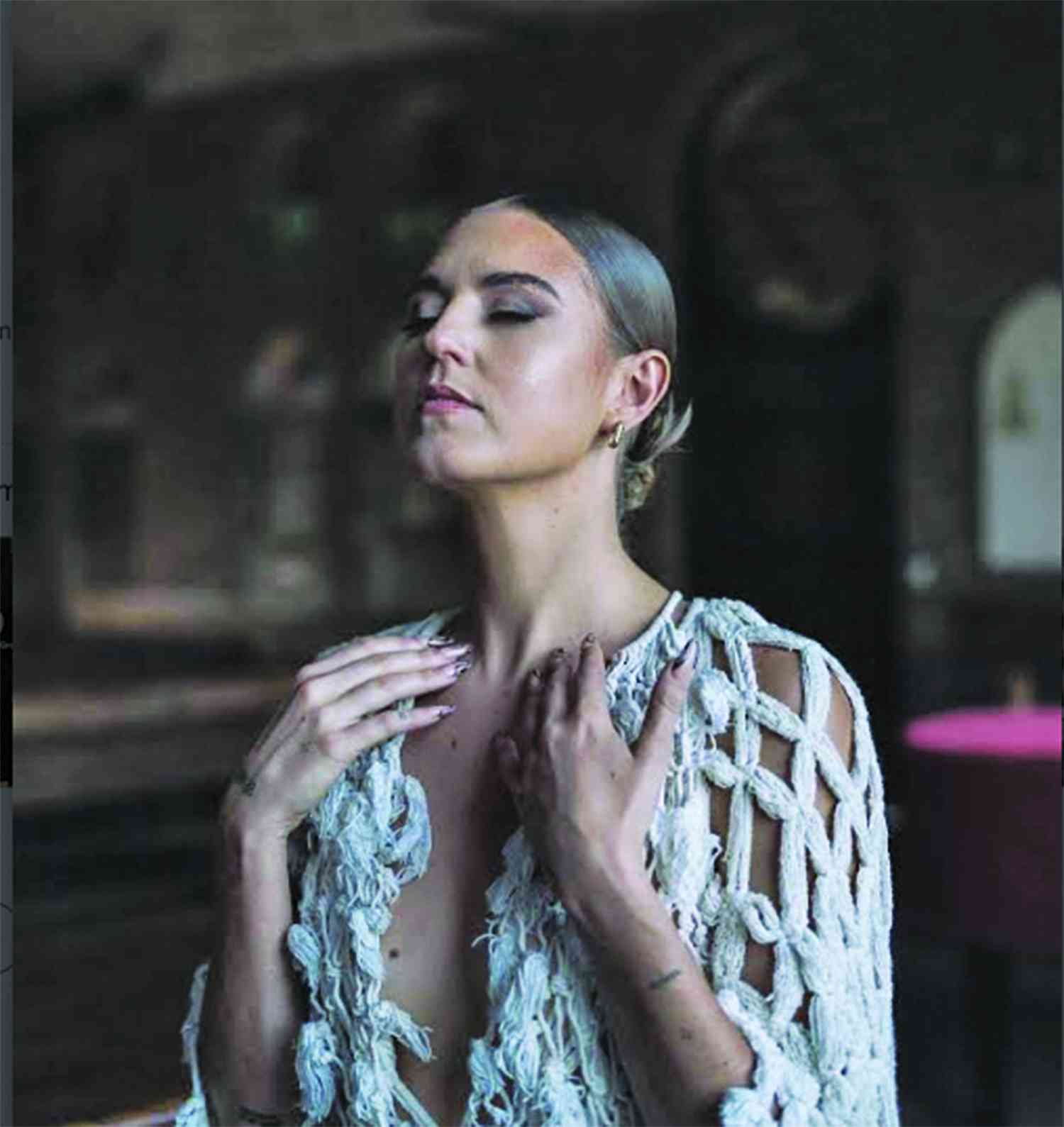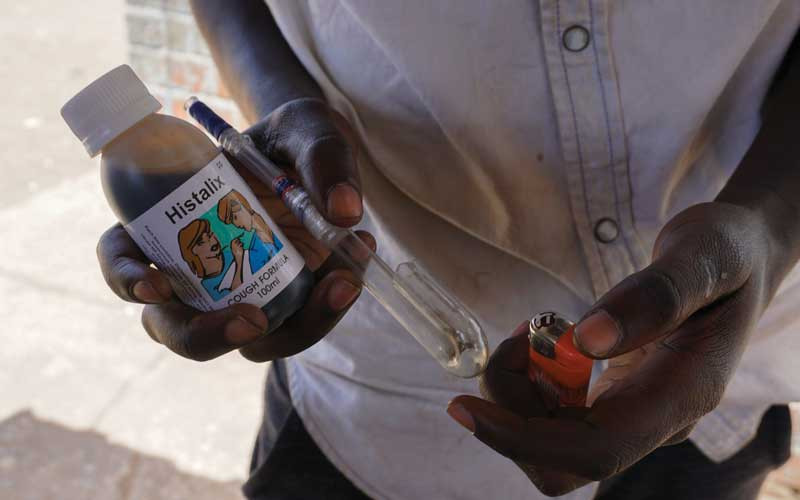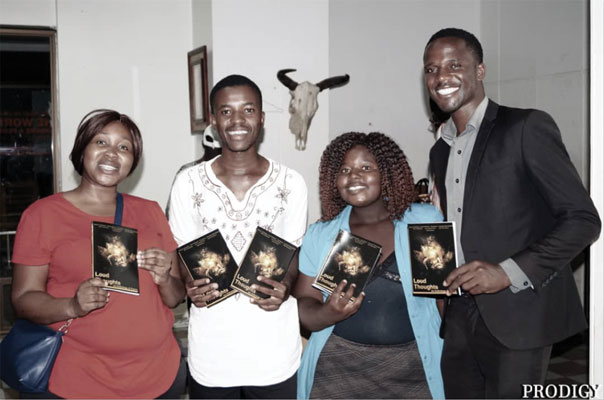
BETWEEN THE LINES:Phillip Chidavaenzi
Title: Loud Thoughts Author: Energy Ma vaza et al Publisher: Hilltop Publi cations (2020) ISBN: 978-1081- 0843-25
EIGHT young poets recently joined forces and brought their poems together for a new poetry anthology titled Loud Thoughts. One can describe in as a combo of diverse styles and themes, something that allows readers of different interests to pick their own takeaways from the collection.
The poets are Vongai Masuka, Sean Sizalobuhle, Wayne Chiripanyanga, Tanyaradzwa Tiffany Nyikadzino, Energy Mavaza (who conceived the idea), Adriana Munyuki and Takaedza Mandinyenga.
It takes a high level of commitment and drinking together of minds for different unique individuals to work together to produce a literary project of this magnitude, and these young poets should be commended for their efforts.
The title itself, an oxymoron of sorts, demonstrates that thoughts that have been private for a long time have now found an outlet, and are now being shared with the world. The formerly private thoughts have now been captured and frozen on paper for public scrutiny, and with proper marketing, can indeed become loud.
The thematic concerns of the poets are as varied as their number, but include gender issues, social issues, religion, love, Pan-Africanism and relationships.
Masuka opens the anthology with a piece whose lengthy title that reads almost like a sentence, Quarter Past Love to the Nearest Heartbreak. The female persona gives an astounding record, almost a parade, of the men in her life. She is torn in terms of choice and is not sure who to settle for.
- Chamisa under fire over US$120K donation
- Mavhunga puts DeMbare into Chibuku quarterfinals
- Pension funds bet on Cabora Bassa oilfields
- Councils defy govt fire tender directive
Keep Reading
There has not only been John, Peter, Ben and Joseph. She has been so busy that Sam, James, Henry, Ronald, Walter and Timothy are also part of the matrix. It is almost like flipping through the pages of a photo album because there are still more — Ngoni, Brian, Marshall and Collen.
The considerations that this young woman has to make will include dumping the cheating man, compromising for the one with a mother who does not like her, settling for the one who has money, a car, physique, talkative and is romantic.
The poem, In the House of the Lord, an ode to the church, focuses on its perfections and ignores the evil. You also have The Last Glance, chronicling the pain of separation as lovers part ways while the persona reflects on the meaning of her lover in her life. Masuka’s contributions also include The Woman in my Heart and My Birthday.
Second in line is Khoza, whose first poem, Daytime Moon, written in epistolary style, portrays a mother writing a warning letter to her son. She warns him against reckless moral behaviour in the face of HIV and Aids, but perhaps its strength lies in how it acknowledges developments that have taken place in the field of HIV and Aids research and treatment over the years. The mother acknowledges that in the event that her son has already been infected, that is not a death sentence like it used to be, but he can still live on.
In Empty Vessel, Khoza shares insights into a purposeful life. His desire is to put his life to good use, contributing to the world as he hopes “to leave my pen an empty barrel/With all ink used up”. Many die with their ideas intact, and leave no contribution to make the world a better place by the time they die. Khoza also contributed Just a Phase, Dear Mister Moon and The Girl Child.
The Girl Child is of particular significance. It is a flash poem that celebrates the girl child, a “rose that grows from the concrete” (p18), which speaks to her strength and capacity to endure as well as her potential, which needs to be celebrated.
In Dear Mr. Alcohol, he personifies alcohol, which he now addresses, cataloguing how their relationship wrecked his life. He is bewildered by how his relationship with alcohol has caused mayhem in his life. Besides breaking apart his family, it also drained him of all his financial resources, which had now been committed to the consumption of the substance.
This is a farewell letter, the burial rites of his relationship with alcohol, in which he stresses that he is turning a new page in his life. In fact, he says he has found Jesus.
Chiripanyanga’s poems can easily be classified as dark, and perhaps that is where their strengths lie. He opens his section with School Bullies. Bullying in schools is a current rage that does extensive emotional and psychological damage to the victims.
In Chameleon Style Friendships, he mourns how many fail the test of friendship when it matters the most while in You Ruined My Life he touches on the betrayal of a loved one who ended up breaking the persona’s heart. His other entries in the anthology are Tanaka and My Broken Life and A Song of a Dead Man.
Nyikadzino’s Daddy Please Come Home is a painful and heart-breaking piece. A young girl cries out for a father “missing in action”, but alive somewhere after abandoning the family, itself an extensive problem of modern societies where “fatherless” families are increasing.
In The Best Funeral Ever, Mavaza recounts the “bling” at Tom’s funeral, where mourners were “clad in white suits” and “crocodile skin-made boots” (pp42). Modern societies are moving away from a “mourning” to “celebrating” concept in honour of the deceased. Call him a rich socialite, the deceased had so much money that rumour at the funeral had it that he would have preferred to be buried in the sky.
In Refuge Me, Mavaza documents the struggles of those forced outside the country by economic hardships. This is the cry of a man in the diaspora, who prefers the ill-treatment he receives in a foreign land than go back home and face economic hardships. He writes: “Better be a slave in foreign land/ Than enduring the whip of a friend.” (p44).
This is a poetry collection that any lover of poetry needs in their bookshelf.



